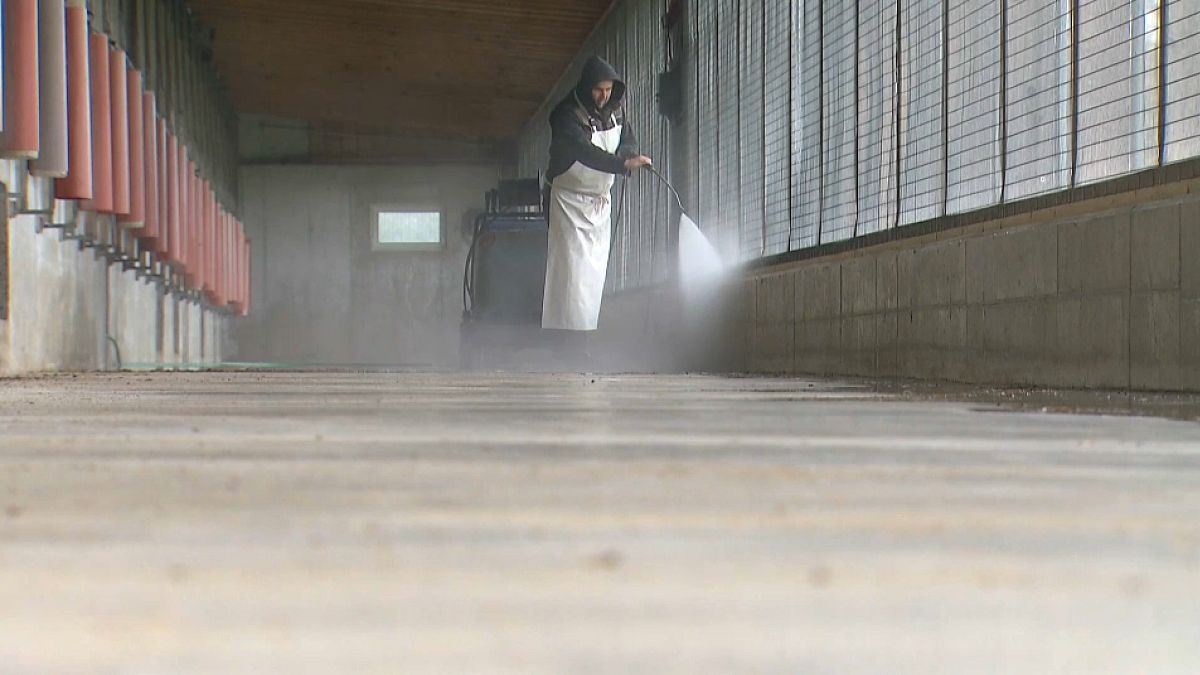Avian influenza is a highly contagious viral disease that occurs mainly in poultry and wild water birds but transmission to humans remains rare.
Austria’s Ministry of Health has declared the whole country as a risk area for bird flu (avian influenza) with new, stricter safety measures coming into force from the early hours of Friday.
That announcement follows an outbreak of bird flu in the Amstetten district of Lower Austria a week ago, which led to the culling of around 18,000 animals.
On Friday, the Austrian military will start an assistance mission in Amstetten and will remove the dead animals and decontaminate lorries and containers.
A protection zone has also been set up around the affected farms within a radius of three kilometres.
Veterinarians are tasked with checking 78 farms within the zone for any cases of bird flu.
In addition, a surveillance zone has been set up within a radius of 10 kilometres. It will remain in place for 30 days.
25 districts in Lower and Upper Austria, Styria, Salzburg, Carinthia and Burgenland have also been classified as areas with a significantly increased risk.
In those districts, farms with more than 50 animals are required to keep their livestock indoors.
Outdoor feeding prohibited
“We have already taken precautions in Lower Austria. We have already designated four districts as risk districts where a general obligation to keep animals indoors applies. I know that the Federal Ministry is already considering measures in this regard for an even larger area across the federal provinces and that these are also being implemented,” said Susanne Rosenkranz, the councillor for Labour, Animal Welfare, Consumer Protection and Nature Conservation in the Lower Austrian state government.
Due to the increased risk of infection, feeding animals outdoors is prohibited throughout Austria and contact between poultry and wild birds must be prevented by nets or roofs.
New cases of bird flu were recently detected in four farms with around 200,000 animals in Upper and Lower Austria.
The number of cases in wild birds has also recently increased.
“In order to contain the spread, the whole of Austria is now being declared an area with increased risk,” explained the Ministry of Social Affairs and Health, which is also responsible for animal welfare.
Authorities don’t yet know how the first infections in Austria started but cases were first discovered in wild birds and domestic poultry in September, around the same time as catastrophic flooding hit several areas of Lower Austria.
Avian influenza is a highly contagious viral disease that occurs mainly in poultry and wild water birds. It can be high or low pathogenic (HPAI/LPAI) depending on its ability to cause severe disease or mortality to the host organism.
HPAI is fatal to domestic poultry and can wipe out entire flocks in a matter of days, whereas LPAI strains typically cause few or no signs of disease.
Transmission to humans is still rare and limited to those in close contact with infected animals and contaminated spaces.
In July, EU agencies the European Centre for Disease Prevention and Control and the European Food Safety Authority called for increased vigilance, warning that while bird flu cases in Europe had decreased the threat remained from bird migrations after summer.
Read the full article here

















